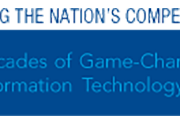Participants explored computer science and multidisciplinary research agendas designed to improve formal and informal education. The workshop built on CCC’s earlier visioning activities on Global Resources for Online Education (GROE), addressing education-relevant research in areas such as intelligent student modeling through data mining, mobile computing for data logging, social networking, serious games, intelligent learning environments, HCI to facilitate educational interactions, computer-supported collaborative learning, interactive visualizations and simulations, and many other areas, to include research at the interface of computing and the social/behavioral sciences. While the workshop built on a rich existing landscape of cyber-enabled education research, it was also informed by very recent developments, such as massively open online courses (MOOCs), that make important dimensions of scale and openness explicit.








